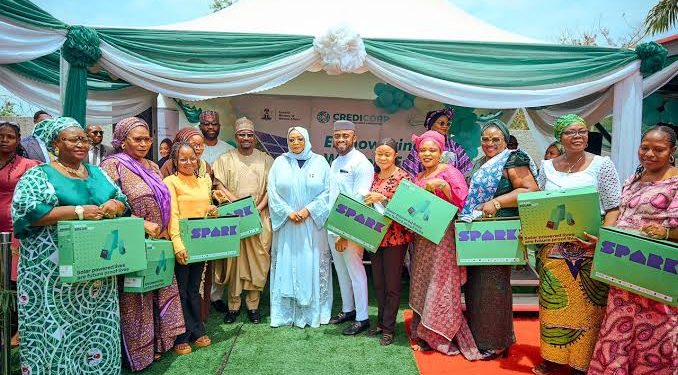In a strategic move to boost energy access and empower women, the Nigerian Consumer Credit Corporation (Credicorp) has allocated N5 billion to help women across Nigeria access solar energy for their homes, businesses, and communities. The initiative is part of a broader N10 billion fund and was announced during the “Empowering Women, Ending Poverty” programme held in Abuja.
Speaking at the event, the Managing Director of Credicorp emphasized that the empowerment of women is not only a moral responsibility but also a smart economic strategy. He noted that women are known for their commitment to loan repayment and for reinvesting in their families and communities. According to him, allocating resources to women yields long-term social and economic benefits that ripple across society.
“This fund is already available, and we plan to expand it as opportunities arise. Half of our N10 billion fund—N5 billion is reserved specifically for women to access solar energy. It’s about giving them power, quite literally, to change their lives,” he said. He added that President Bola Tinubu’s commitment to expanding access to credit is the driving force behind this initiative.
The focus of Credicorp’s energy drive is on renewable alternatives, especially in areas where women are disproportionately affected by limited access to clean power. The organisation is prioritising mobility and energy, recognising these as key to improving the quality of life and economic participation for Nigerian women.
Also speaking at the event, the Minister of Women Affairs described the programme as a transformative moment in Nigeria’s journey toward inclusive development. She stressed that the clean energy push is not a theoretical policy move, but a revolutionary effort to improve lives at the grassroots level.
“Every year, more than 80,000 women in Nigeria die from exposure to toxic smoke caused by traditional cooking methods. These are not just statistics. These are mothers, providers, and nation-builders. We must bring this to an end,” she said.
She explained that the solar energy initiative will be designed, led, and implemented by women, with an emphasis on using data and community insight to reach rural and underserved areas. The approach is intended to create sustainable energy solutions that are not only accessible but also relevant to the everyday needs of women across the country.
This effort reflects a broader shift toward inclusive, people-focused energy policy in Nigeria, where women are positioned not just as beneficiaries but as leaders in the clean energy revolution.










